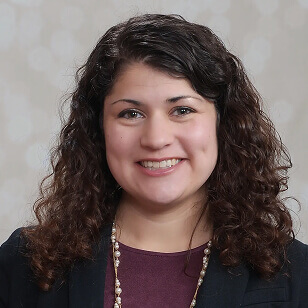Effexor has a
Highlights
- Effexor (venlafaxine) is a serotonin-norepinephrine-reuptake inhibitor (SNRI) antidepressant approved to treat major depressive disorder (MDD), generalized anxiety disorder (GAD), social anxiety disorder (SAD), and panic disorder (PD).
- Effexor has specific side effects and risks. Remember to discuss them with your physician before starting treatment.
- Licensed healthcare providers at MEDvidi can prescribe antidepressants like Effexor online if deemed clinically necessary.
Effexor (venlafaxine) is an antidepressant available only by prescription. During an in-person or online consultation with a healthcare provider, they will assess your symptoms and offer suitable treatment options, which may include Effexor. What else is included in this process, how to take this medication safely, and other important details are covered below.
What Is Effexor (Venlafaxine)?
Effexor (venlafaxine) is a type of antidepressant known as a
Venlafaxine, the active ingredient in Effexor, works by altering the levels of certain chemicals in the central nervous system (CNS), specifically serotonin and norepinephrine. This action raises the amounts of these chemicals available at the ends of nerves and ultimately increases the stimulation of nervous system receptors.
SNRIs such as Effexor differ from other popular antidepressants, selective serotonin reuptake inhibitors (SSRIs), in that SSRIs
Effexor is only available with a prescription from a healthcare provider and cannot be obtained over the counter.

Who Might Benefit from Effexor?
- Major depressive disorder (MDD)
- Generalized anxiety disorder (GAD)
- Social anxiety disorder (SAD)
- Panic disorder (PD)
It
- Attention-deficit hyperactivity disorder (ADHD)
- Fibromyalgia
- Diabetic neuropathy
- Complex pain syndromes
- Migraine prevention
- Post-traumatic stress disorder (PTSD)
- Obsessive-compulsive disorder (OCD)
- Premenstrual dysphoric disorder (PMDD)
Who Should Not Take Effexor (Venlafaxine)
The following individuals
- Patients allergic to venlafaxine or other components of Effexor.
- Patients taking monoamine oxidase inhibitors (MAOI) or those who have stopped taking them in the last 14 days.
- Children should not use Effexor.
Healthcare providers at MEDvidi have extensive expertise; they can make an accurate diagnosis and offer a tailored course of treatment. If MDD, GAD, SAD, or PD is diagnosed, you can get an Effexor (venlafaxine) prescription online if it’s deemed to be a suitable treatment option.
How to Get an Effexor Prescription Online (Step-by-Step)
Step 1: Create an account and book an online appointment with a licensed provider
Sign up on MEDvidi and provide basic personal information, including contact information and medical details. Now, you are all set to book an appointment with a healthcare provider at a convenient time slot of your choice. Same- and next-day appointments are available.
Step 2: Prepare for the appointment and undergo evaluation for treatment
Before your appointment, take a few steps to prepare properly:
- List your symptoms so you will be ready to describe them to your healthcare provider.
- Prepare a list of current medications, allergies, and relevant medical history (such as chronic illnesses or other conditions) to help your healthcare provider make an appropriate treatment choice.
- Prepare a list of questions. These may include potential side effects, how long the medication takes to work, the possibility of switching treatment options, and anything else you may want to know.
During your online appointment, the provider will review your health history and symptoms, discuss appropriate treatment options, explain the risks, side effects, and alternatives. If medically appropriate, your provider will then write a venlafaxine prescription online for you.
Step 3: Pick up your prescription from a pharmacy
If Effexor seems to be the most suitable option for you, a healthcare provider will send your prescription digitally to a pharmacy of your choice. Pick-up and delivery options depend on the pharmacy.
Step 4: Continue with follow-ups and adjustments
Schedule regular follow-up appointments with your medical provider. During these visits, you’ll receive prescription refills, report the side effects if you have any, and adjust your treatment plan over time.
How to Take Effexor Safely
If you get prescribed Effexor, you’ll receive individualized instructions from your medical provider. Below are a few general recommendations for safe treatment:
- Effexor XR is typically dosed between 37.5-75 mg daily. Take Effexor exactly as prescribed by the healthcare provider; they may change the dose if needed.
- Take Effexor with food.
- If a dose is missed, it must be taken as soon as possible. If it is almost time for your next dose, skip the missed dose and stay with the regular dosing schedule. Do not double the dose.
- If you take too much Effexor, call your healthcare provider, Poison Control, or for emergency treatment.
- Store Effexor in a safe place and do not give the medication to anyone else.
Side Effects of Effexor
It is important to be aware that, like any medication, Effexor can potentially lead to side effects. However, most of these effects are often mild and can be managed with dose adjustments or other strategies as directed by a healthcare professional.
Common Side Effects
Some common
- Nausea
- Fatigue
- Dry mouth
- Sweating
- Abnormal ejaculation
- Anorexia
- Constipation
- Erectile dysfunction
- Decreased libido
Serious Side Effects
Other possible severe side effects of Effexor may include:
- Hypersensitivity (skin rash, hives, fever, etc.)
- Serotonin syndrome
- Elevations in blood pressure
- Abnormal bleeding
- Glaucoma
- Manic episodes
- Hepatic or renal impairment
- Decreased sodium levels
- Seizure
- Lung problems

It is also important to note that
It is essential to communicate any side effects you experience while taking Effexor to your healthcare provider. They can assess the severity of your reactions and make appropriate adjustments to the treatment plan if necessary. For instance, they can substitute Effexor with other antidepressants.
Cost of Effexor
The cost of Effexor can vary by pharmacy, location, strength, and whether you are looking for a brand or generic version. It also can depend on if you have insurance or not. Without insurance, the brand version of Effexor XR can cost upwards of $525 to $720, and generic venlafaxine can cost from $20 to $100 for 30 tablets, depending on the formulation and strength. With insurance, patients can pay as low as around $5 to $12 for a 30-tablet supply.
How to Save
- Certain websites like GoodRx and WellRx offer coupons and discount cards that can significantly reduce this price.
- Some pharmaceutical companies and non-profit organizations offer assistance to patients who cannot afford their medications, called patient assistance programs.
- Some online pharmacies may offer lower prices than traditional pharmacies.
Alternatives to Effexor
A healthcare provider may prescribe an alternative to Effexor for various reasons, including more possible benefits, patient response to treatment, preferences, unacceptable adverse effects, or cost.
Antidepressants that are most commonly recommended by guidelines for MDD, as well as some alternative anti-anxiety medications, include SSRIs like Lexapro (escitalopram) and Zoloft (sertraline), as well as other SNRIs like Cymbalta (duloxetine) and Pristiq (desvenlafaxine). Other medication options include bupropion, mirtazapine, nefazodone, trazodone, vilazodone, and vortioxetine.
It’s important to note that, when
Non-pharmacological alternatives also exist, such as cognitive-behavioral therapy or other types of talk therapy and lifestyle strategies.
Why Choose MEDvidi for Mental Health Care?
If you are experiencing concerns related to mental health, MEDvidi is here to provide assistance. We offer compassionate, accessible, and personalized care through licensed providers, evidence-based treatment, and same-day appointments. Join MEDvidi today to get help in improving your mental well-being, including online prescriptions for Effexor, Effexor XR, or another suitable medication, when clinically appropriate.
Frequently Asked Questions
Do I need a prescription for venlafaxine?
Who can prescribe venlafaxine?
Licensed healthcare providers such as primary care providers, psychiatrists, nurse practitioners, and physician assistants can prescribe antidepressants such as venlafaxine













